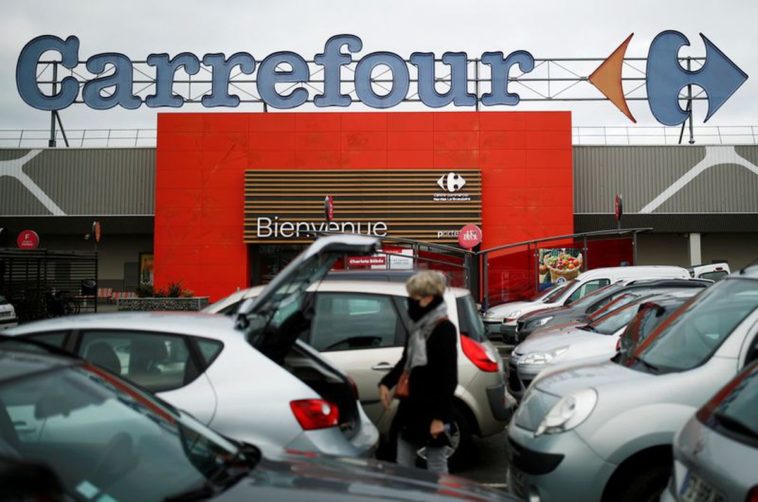Paris-based grocery giant Carrefour’s business operations
/cloudfront-us-east-1.images.arcpublishing.com/tgam/E3H5YJW25JPBVBHVBLMFQLUMFY.JPG)
A customer in front of a Carrefour hypermarket store in Carquefou, near Nantes, France on Jan. 13, 2021.
STEPHANE MAHE/Reuters
Carrefour (CRRFY) is a household name in France, but just like its suitor, Canada’s Alimentation Couche-Tard Inc., it has a presence far beyond its home base, with operations in more than 30 countries.
The Paris-based grocery giant is the largest retailer – with €80.7-billion ($124.6-billion) in sales in 2019 – and largest private-sector employer in France, where roughly 105,000 of its 320,000 global employees are located.
Carrefour was founded in 1959. Its name, which means “crossroads” in French, comes from its original supermarket, opened at the corner of two streets in Annecy, a town in the east of the country. In 1963, the company opened its first “hypermarket” just south of Paris, a big-box superstore selling groceries alongside products such as clothing and housewares.
Couche-Tard makes US$20-billion play for French grocer Carrefour
The company now operates 12,775 stores around the world, including more than 7,700 convenience stores, 3,413 supermarkets, 1,205 hypermarkets and 428 “cash and carry” stores that provide bulk purchases at wholesale prices to retailers, caterers and others.
In 1999, Carrefour merged with supermarket and convenience store owner Promodès, a deal that made it the second-largest mass-market retailer in the world at the time, behind Walmart. It launched e-commerce in 2000 – years ahead of many North American peers.
Its international expansion began in 1973 in nearby countries such as Switzerland, Belgium and Italy. In the ensuing decades it has continued to grow, not always successfully: A launch of the hypermarket concept in the U.S. in the late eighties fell flat, and more recently the company pulled back on its investment in China. Carrefour has also built a significant presence in Latin America: Brazil is its second-largest market. Just more than half of the company’s sales now come from outside France.
While the company invested in international expansion, competition in the grocery market closer to home intensified significantly. In recent years, Carrefour has faced competition from grocers such as Auchan and Leclerc, as well as discount giants Lidl and Aldi. And its hypermarkets have faltered as better-situated neighbourhood shops and e-commerce have both gained in popularity.
In 2017, Carrefour hired CEO Alexandre Bompard, who launched a turnaround plan the following year. The “Carrefour 2022″ plan aims to cut costs while investing €2.8-billion over five years in e-commerce – including expanding both home delivery and online orders for store pickup. The project’s goals also include making prices more competitive, and improvements to productivity, customer satisfaction and food quality. Carrefour plans to open 3,000 more small-format stores by 2022.
Like other grocers, Carrefour has benefited from people cooking at home more during pandemic: In the third quarter, it reported its best performance in more than two decades, with comparable sales increasing 8.4 per cent, not including petrol.
Your time is valuable. Have the Top Business Headlines newsletter conveniently delivered to your inbox in the morning or evening. Sign up today.
Published at Wed, 13 Jan 2021 23:42:24 +0000






Comments
Loading…